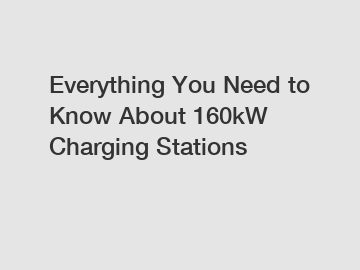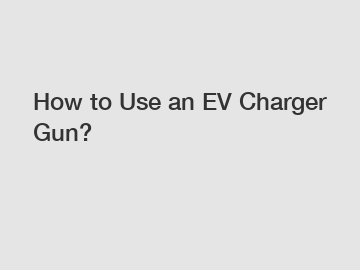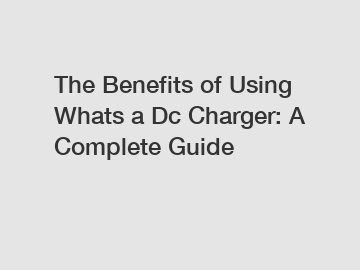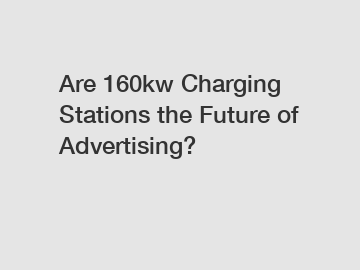10 Things to Consider Before Having a Whole House Generator Installed — New London Electric
Only about 5% of American homeowners have taken the time to install a generator for their houses. The other 95% are going to be left without backup power in the event of a power outage in their area.
If you don’t have a generator hooked up to your home electric system yet, you should think about installing one soon. More specifically, you should give serious thought to installing a whole-house generator.
What is a whole-home generator? Well, it’s a type of generator that will turn on automatically during a power outage and supply your entire house with the electricity it needs. It could really come in handy if your home is ever hit with a power outage for an extended period of time.
Are you interested in the idea of installing a whole-house generator? Here are ten things to consider before putting one into place.
1. Determine What Type of Generator You Need
When you’re first in the market for a whole-house generator, you’ll need to realize that there are a couple of different types you can buy. There are whole-house generators that can run on propane as well as those that can run on natural gas.
If you already have a propane tank, it might make your decision easier. But either way, you’ll need to consider whether you want to invest in a whole-house generator that runs on propane or natural gas before doing anything else.
2. Consider What Size Generator Aligns With Your Home’s Needs
Once you know which type of whole-house generator you would like, the next thing you should do is consider how big you’d like it to be. The size of a whole-house generator will depend on the size of your home and the number of appliances in it.
Here are a few of the best whole-house generator sizes:
10 kW generator
18 kW generator
24 kW generator
If you have, say, a 2,500-square-foot home, you might be able to get away with using a 10 kW generator. But if you have a home that’s over 5,000 square feet, it’ll be a different story. In this case, you’ll need a larger 24 kW generator.
Your installer can help you determine what size you need based on your home’s size and electrical needs.
3. Find a Brand You Can Trust
Although very few American homes have whole-house generators at this point, the global generator sales market is expected to grow at a rapid rate in the coming years. It’s projected to be worth almost $29 billion by 2027.
Because of this, there are lots of different brands getting in on the action and selling whole-house generators. It’s going to be very important for you to select the best one of the bunch.
Generac is a great example of a manufacturer you can trust to supply you with a long-lasting, whole-house generator that will check all the right boxes.
4. Decide How Much You Want to Spend
There are some whole-home generators that’ll cost you just a few thousand dollars. There are also others that’ll cost you more than $10,000.
With this in mind, you shouldn’t be shy about coming up with a budget for buying a whole-house generator in advance. It’ll ensure that you don’t spend more than you’re comfortable spending to install a generator.
Or, if nothing else, you should do your best to shop around for a whole-house generator from a company like Generac that isn’t going to break the bank. There are plenty of whole-house generators that will fit into your preferred price range.
Financing options are also available to make things easier.
5. Ensure the Generator You Want has a Good Reputation
One of the best ways to figure out which whole-home generators will be the best ones for your house is by reading online reviews for them. These reviews will tell you so much about what you can expect from different options.
If you notice that one whole-house generator has nothing but negative reviews written about it, it’ll be a big red flag. This is the type of generator you’re going to want to stay far, far away from.
You should instead focus all your attention on a whole-house generator that has earned a whole host of positive reviews from people. It’s what you’re going to find when you read through reviews from a trusted name like Generac.
Further reading:How many solar panels would be needed to run a home ...
Electric Power Sector Basics | US EPA
5th Grade Science
Who is the world's leading supplier of new energy?
Homeowner's Guide to Going Solar
The 6 Best Car Chargers of 2023 - Tech Gear Lab
Harnessing the sun: The rise of solar roof tiles in Australia
6. Identify Where Your Generator will be Located
A whole-house generator is going to take up a decent amount of space on the exterior of your home. So you’re going to want to consider where you would like to put it before having it installed.
In a perfect world, you’ll want to install a generator in a place where it’ll be easy to access. At the same time, you’ll also want it to exist in a space where you won’t have to worry about it turning into an eyesore and impacting your curb appeal.
The company you call on to install a generator for you should be able to walk you through some options you’ll have when it comes to your generator’s location. You can pick the one you think will work best.
7. Select the Best Electrician to do the Installation
There are well over 1 million electricians working throughout the U.S. as of early 2023. Many of them will work for companies that can offer whole-house generator installation services to you.
But you shouldn’t simply Google “whole-house generator installation near me” and hire the first electrician you can find to assist you. Instead, you should make a list of your local options and carefully consider each one before selecting the one that seems like they’ll do the best job.
New London Electric, Inc. is one of the best companies in the Chester County, PA, and New Castle County, DE areas for whole-house generator installations. You can count on us to install a generator for you from a reputable company like Generac.
8. Prepare to Have a Transfer Switch Installed
You’re going to need to have a transfer switch installed on your home’s electric panel for your whole-house generator. A good electrician is going to be able to help you decide which one you should go with when the time comes.
You might not know the first thing about transfer switches and how they work. But you’ll be able to get a much better idea as to which ones would be the right options for your home as long as you hire the right electrician to assist you.
9. Consider a Warranty for Your New Generator
Most whole-house generators will last for at least 3,000 hours in most cases. As a result, you shouldn’t have to worry about replacing a new whole-house generator anytime soon after having one installed.
But it’s always better to be safe than sorry when it comes to the warranty on a new whole-house generator. You should look for one that’s going to provide you and your new generator with the protection you need.
The last thing you want to have happen is to experience whole-house generator problems with a generator that doesn’t come with a decent warranty attached to it. It may lead to you having to pay out of pocket for costly repairs.
10. Determine How Much Maintenance will be Required
Every whole-house generator is going to call for you to do a little bit of maintenance on it. There won’t be any getting around it.
But the best whole-home generators are going to require less maintenance than all the rest. Make sure you check to see what you’ll need to do to maintain a generator over time.
You should also check with the electrician who is installing a generator for you to see if they offer maintenance services. You’ll have one less thing to worry about when you know you can hire them to come back out to service your generator.
Whatever you do, you don’t ever want to put off doing whole-house generator maintenance at any point. It could lead to a generator not lasting anywhere close to as long as you would like it to.
It’ll be very important for you to stay on top of generator maintenance from the second you have one installed. And it’ll all start with you getting a better idea of how much maintenance it’ll need in the first place.
Let Us Install a Generac Whole-House Generator
As you can see, there are so many things to consider when installing a new whole-house generator. It’s why it’ll be helpful to have a company like New London Electric, Inc. by your side.
We can walk you through the different Generac whole-house generators that we offer and help you pick out the best option for your home. We can also handle every aspect of installing your new generator so that you don’t have to worry about doing a thing.
Contact us today to get more information on the whole-house generators that we have available.
What is a Generator?
A generator is a machine that turns mechanical energy into electrical energy. It provides electricity to devices and appliances when you are not connected to the power grid. Generators are important safety equipment during natural disasters such as hurricanes and snowstorms, or during any power outage. Having a home generator will allow you to keep on lights, important appliances, essential medical equipment and your home’s heat. If you live in an area that gets frequent but short outages, a generator can ease the inconvenience and ensure your day is never interrupted by an unexpected blackout.
Smaller generators are also useful for powering RVs, boats and workshops without electrical wiring. Keep a portable generator on hand for activities like tailgating and camping, when you may need to power small appliances or charge devices.
10 Things to Consider Before Having a Whole House Generator Installed — New London Electric
Generator Buying Guide
Further reading:6 Common Mistakes to Avoid When Installing Solar Panels
Benefits of DC Electricity in Buildings
10 Things to Consider When Buying Home Power Storage
What are the best practices for EV charging stations?
How do you compare solar systems?
Whole Home Battery Backup: What Every Homeowner Needs to Know
7 Questions to Ask Before Buying Solar Battery Storage







